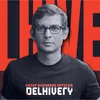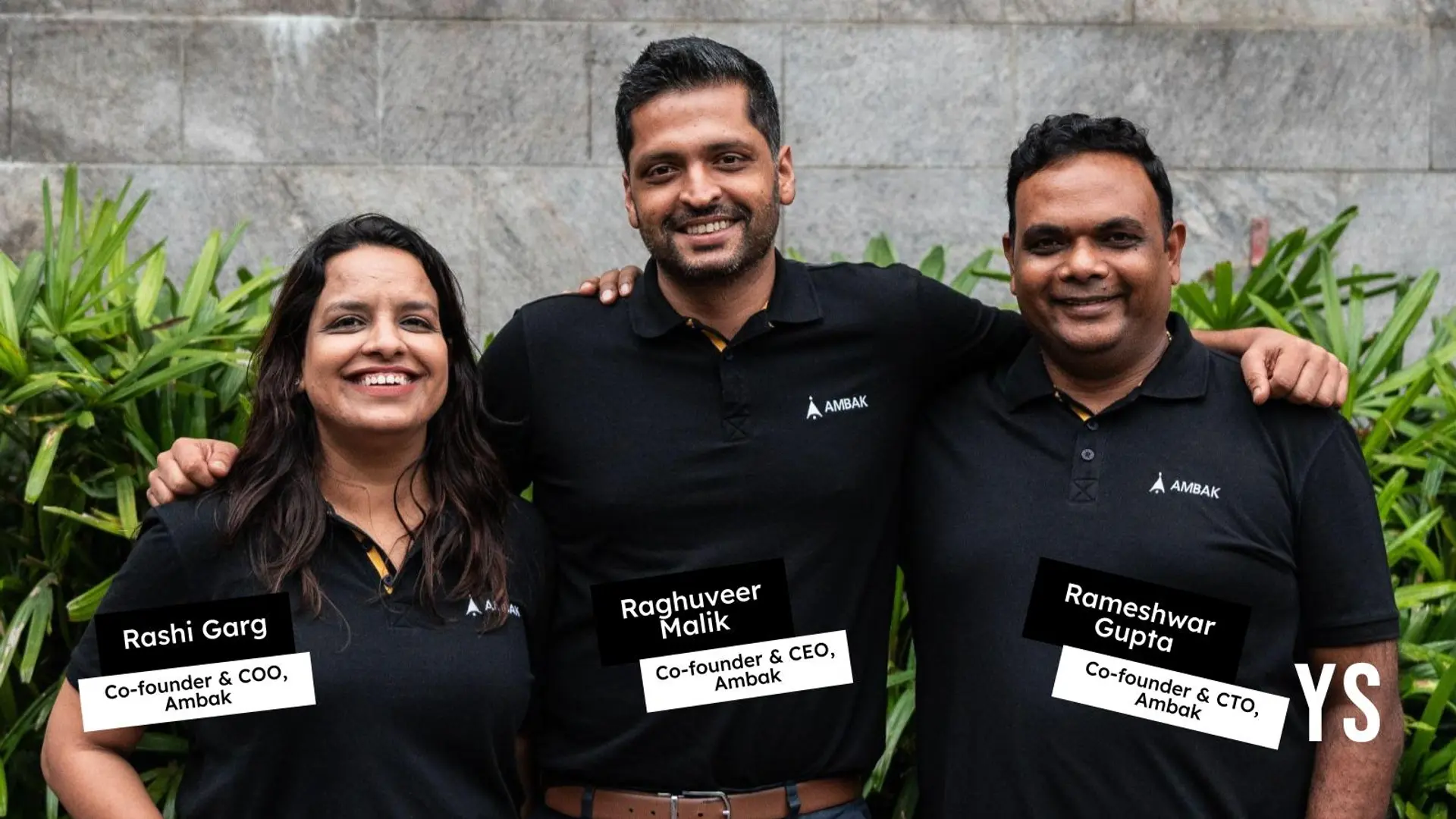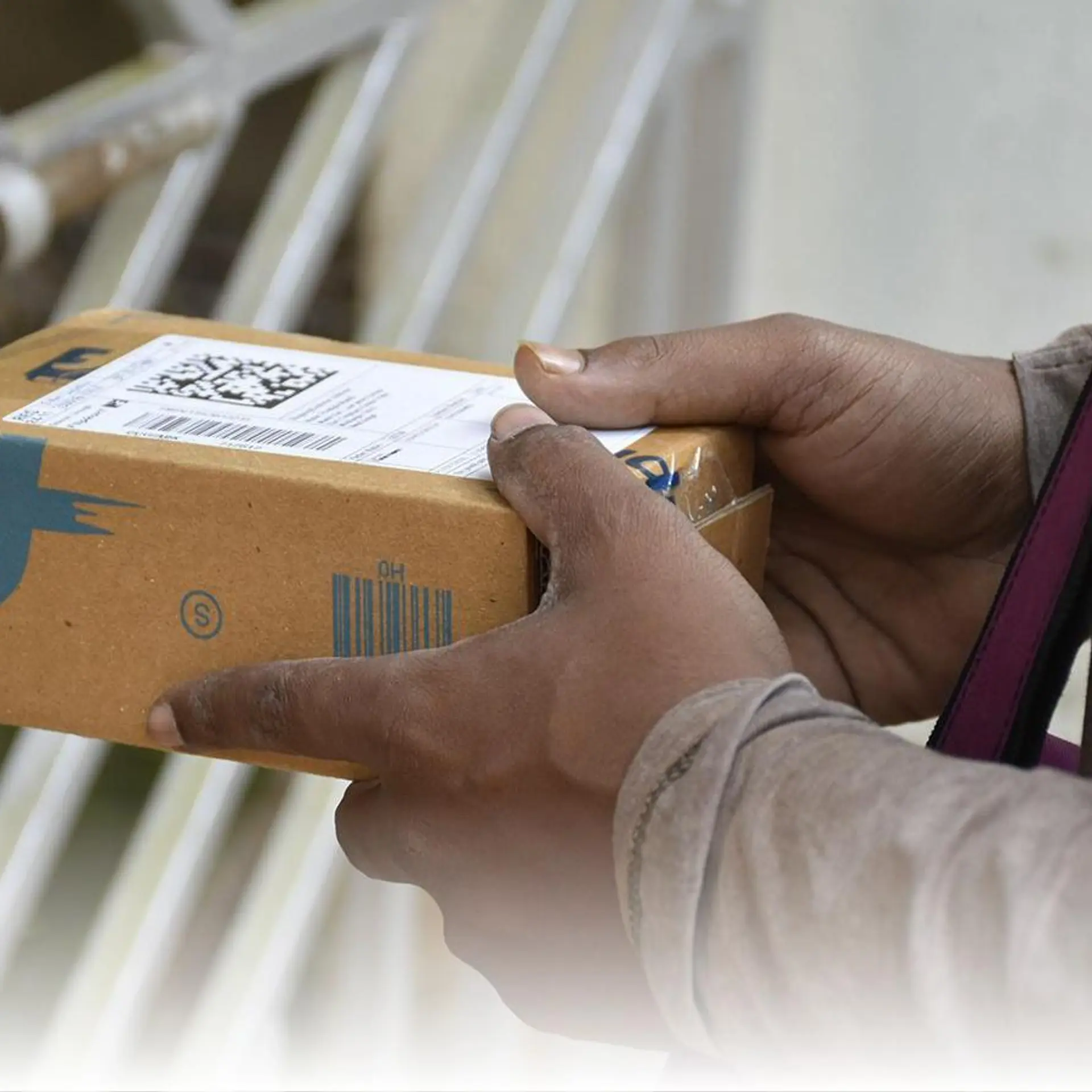The fintech entrepreneur powering 30,000 livelihoods, 52 million unbanked Indians
Seema Prem, Founder of fintech startup FIA Global, is on a mission to transform a billion lives through financial inclusion.
A line can be different things to different people. For a leader, it’s the promise of a better tomorrow; for a standup comedian, the punchline that draws the laughs, and for the poet, a tiny piece of the soul.
But for FIA’s Seema Prem, a line from an article took her directly from college to the world of fintech startups. As a student of the Massachusetts Institute of Technology (MIT) in the United States, she was surprised to find out that half the world’s population did not have access to banking.
“I was reading this article, and that one line just struck me, which is that half the world is unbanked. And out of that, 800 million are in South Asia,” Seema says in an exclusive interview with YourStory. “And that's when I decided I will start working on it.”
It’s not like she wasn’t conscious of the plight of the underprivileged before. Born into an Army family and having lived in some of the remotest corners of the country, Seema was acutely aware of the increasing gap between the haves and have-nots and keen on working towards a more equal India. That line in the article just showed her what she needed to do.
Seema went on to take part in the MIT $100K Entrepreneurship Competition with an idea that combined her experience of working at a mobile service provider with the efficiency of financial technology.
She won runner-up, leading to the birth of Gurugram-based banking services firm FIA Global in 2012. “So, you could say that FIA is a culmination of my desire for social inclusivity. Because I'm an Army child. And I've lived in some of the most backward places in the country, where I've seen great iniquities,” says Seema, an engineer who also has an MBA from XLRI.
She initially co-founded FIA—which stands for Fearlessness, Inclusivity, and Agility—with Sameer Mathur, also an MIT alumnus. But Sameer has since left the organisation.
FIA offers assisted banking services through partnerships with financial institutions. The fintech startup has banking outlets across India manned by micro-entrepreneurs who are appointed after rigorous vetting.
But Seema wasn’t taking any chances, especially since FIA operates in regions with low literacy. “I think early on, one of the biggest challenges was risk. So, we realised that risk had to be a big focus, because we're working in a highly low-literate environment, and very resource-poor settings.”
And this is where the technology part of fintech stepped in. “So, we realised that we would have to get into predictive systems very, very early on, and look at innovating around technology.”
FIA’s third hire was the head of risk from Max New York Life (now Max Life Insurance) for the East region, puzzling her colleagues who then thought she should instead bring in more salespeople to grow the business.
“And I think that (the hiring) paid off,” she says. “Consistently, over a period of time, using technology… using predictive systems, we've been able to keep our frauds in low-literate environments very low.”
A series of fortunate events
And in what turned out to be a series of fortunate events, FIA signed up State Bank of India (SBI) as its first client, focused on the remotest corners of the country, and qualified for grants from international organisations.
Let’s look at its deal with SBI first. In 2006, the Reserve Bank of India came out with a policy to deepen financial inclusion by giving banks permission to tie up with private players to set up outlets on their behalf. These “mini bank branches”—equipped with a laptop, a biometric device, and a printer—are operated by a bank mitra, also known as a business correspondent. FIA’s deal to do so for SBI gave it scale that others could only dream of.
Second, its focus on the remotest corners of the country meant a huge, untapped market and negligible competition. This move to operate in interior India was not by choice but on the insistence of its clients. “Our clients told us ‘do rural, and then we will give you the profitable urban centres’. So, we'd no choice but to go to rural India,” says Seema. “And that's when we realised that it was tough, but the opportunity was there. Because people were not banked. There's no competition. And so that gave us a scale to remain sustainable year on year.”
FIA has been profitable from its first year of operations and has done so without getting any investor money—each of the achievements is rare by itself, but the combination of no fund-raising plus early profits is almost unheard of in the fintech sector. FIA’s profit rose 35% to Rs 15.07 crore on revenue of Rs 120.1 crore in fiscal year 2021.
The grants that FIA got from international institutions helped—it could continue to grow without raising funds from investors. “Of course, the early stages were tough and grants from the World Bank and the Millennium Alliance Consortium… helped us remain bootstrapped and profitable since inception. If it wasn't for the grants, we would have definitely looked for funding early on because we were growing rapidly.”
Growth uninterrupted
Today, FIA has touched the lives of more than 52 million Indians through its services, is present in 712 of the 773 districts of the country, and has given livelihood to over 30,000—and all this by being profitable.
Even Seema’s most aggressive growth plans had not prepared her for the kind of growth that FIA saw. “When I was building the Excel models, we used to say that if an agent has an average of about 500 customers, that was awesome…. And then finally, we end up with agents who have as high as 25,000 to 50,000 customers. So, they are four times (the size of) some of the rural bank branches from a customer-base standpoint.”
Seema is visibly proud when she speaks about the way FIA has transformed lives for the better. She gives the example of Manas Ghosh, a dairy farmer who also ran a small stationery shop in Bengal’s Burdwan. He was thinking of migrating to one of the bigger cities to meet his family’s growing expenses when FIA appointed him as a banking agent. His life changed completely after that.
“Now suddenly, back in Burdwan, he is earning Rs 25,000 to 30,000 a month. While at the same time, you know, providing a service,” Seema says. “The job satisfaction that I see in him and the pride with which he speaks about the job, that's phenomenal.”
FIA is also keen that more women become its agents. “Because having a woman run the centre means you will have more inclusion,” she says.
It’s agents like Manas that FIA will rely on to succeed as it takes its first steps to becoming a neobank—a sort of digital-only bank. “The advantage that we see for FIA when we start lending is we already have the customer base, and our agents have strong customer affinity,” Seema points out. “A lot of the time of the lender is spent on collections, but our mechanism is already in place, because transactions are happening at our centres.”
The idea to expand into neobanking, though, came from its customers. During one of her visits, Seema noticed that chit funds were luring the villagers with spurious schemes that offered amazing returns. “And that's when we realised that with the business correspondent model, we're just offering basic banking services,” Seema says. “But then there's this huge segment of people who wanted loans, who wanted insurance, and who wanted, you know, higher investment products in order to plan for their retirement. That's when we said we will set up the neobank.”
Seema realises that her dream to create the world’s largest neobank for the poor will require more funds than FIA can generate internally. This has now made her open to investments. “Our target segment is very clear. It's the underserved and the underbanked people the world over,” she says. “It's always been about transforming a billion lives.”
Edited by Saheli Sen Gupta









